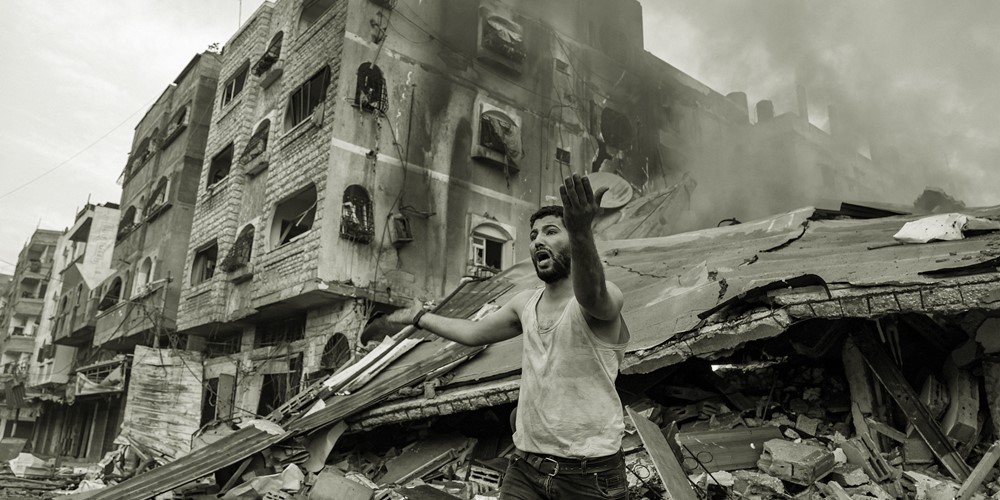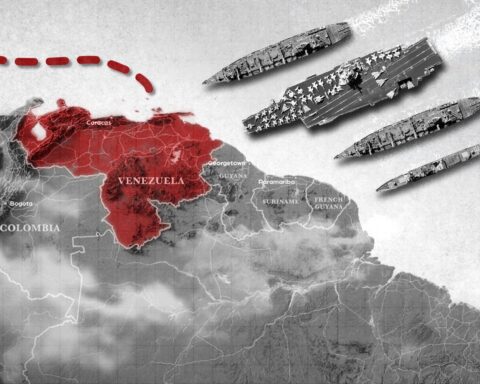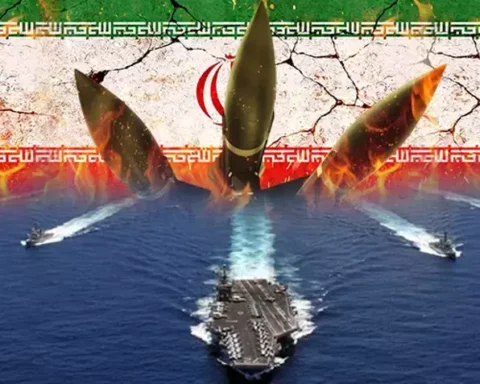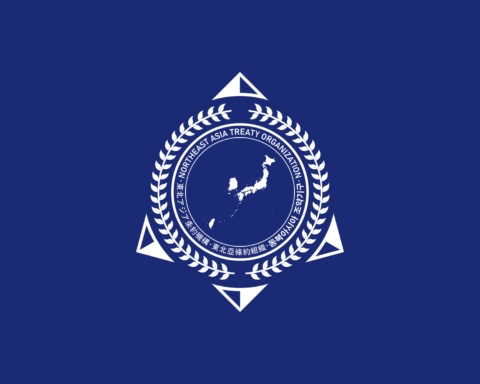The concept of exceptionalism is often invoked to explain “the Palestinian question” within the international system. Palestine is framed as an anomaly: an anachronistic settler-colonial project, enduring apartheid, occupation, and genocidal practices in a post-colonial world. Consequently, Israel’s violence, unlawful practices, and impunity are considered deviations within an international system otherwise grounded in shared values, impartial institutions, and a universal normative framework.
This narrative is dangerously misleading. It obscures the entrenchment of colonialism within the modern world order. Far from being an outlier, Palestine exposes the colonial foundations of international relations. Israel’s perpetration of colonialism is not an aberration in a fair and just world; it is instead the starkest manifestation of a global order designed and structured to uphold, protect, and legitimize (neo)colonial power dynamics.
The colonial architecture of international law
International law emerged to sanction the enslavement of millions of Africans, the colonial conquest of the so-called “New World,” and the subjugation of its Indigenous peoples economically, culturally, and politically. For over 500 years, it has orchestrated Europe’s history of exploitation and dispossession, serving to mediate competing imperial ambitions and legitimize territorial expansion. The works of Francisco De Vitoria and Hugo Grotius, considered the fathers of international law, exemplify this. Their conceptualization of “natural law” established a standard of civilization based on European lifestyles as the benchmark to advance territorial conquest and the oppression of non-Europeans. According to this standard, the so-called “civilized” had the right to conquer, while the “uncivilized” were to be enslaved, exploited, subjugated, and genocided. Any means of resistance of the “uncivilised” became synonymous with savagery and terrorism. The standard of civilization essentially consisted in the institutionalized power to colonize.
As international law evolved, it adapted to the features of new forms of colonialism. The global order that emerged from the ashes of World War II was still ruled by superpowers and their interests. However, it was presented as a fair and equal system under the facade of a universal legality guaranteed by super-partes institutions, steered by the United Nations.
The enshrinement of the Trust Territories system in the UN Charter and the Eurocentric epistemologies informing the codification of international treaties, such as the Universal Declaration of Human Rights or the Genocide Convention among others reveal this continuity. The old standard of civilization was “repackaged” and translated into new and more acceptable dichotomies such as democratic vs. undemocratic, developed vs. underdeveloped, and liberal vs. non-liberal. European ideals of democracy, development, and economic liberalism became the new justification for the control and exploitation of other regions and peoples. The UN Security Council’s veto system is the most ostentatious admission of the post-WWII system’s renewed commitment to the hegemony of superpowers.
The decolonization wave of the 1950s to the 1970s brought only nominal independence, as former colonies remained ensnared in new forms of domination. Political independence obfuscated the enduring economic subjugation exercised through financial institutions, unfair trade agreements, and multinational corporations extracting wealth, reinforced by IMF and World Bank structural adjustment programs. Former President of Ghana and political theorist Kwame Nkrumah denounced this period as the transition from classical colonialism to neo-colonialism. This economic subordination has been legitimized by ideological narratives that have presented capitalist development as equating to universal human rights standards, concealing its exploitative agenda.
International law and institutions, in essence, heralded a symbolic emancipation, short of material liberation from colonialism.
The ‘right to armed struggle’: friend or foe?
The laws of war, particularly the Geneva Conventions of 1949 and their Additional Protocols of 1977, reflect this contradiction. The pretense of regulating anticolonial struggle under the same legal frameworks that govern conflicts between states reproduces and further entrenches an inherent power imbalance rather than mitigating it.
This approach, while ostensibly universal in its application, imposes a formal legal symmetry between colonizers and the colonized—between an occupying power and those resisting domination. These norms fail to account for the structural inequalities and power dynamics that define colonial relationships. By treating the resistance of the colonized as subject to the same legal constraints as state militaries, these legal frameworks obscure the material and historical conditions of oppression.
Furthermore, these legal norms often function to delegitimize and criminalize resistance while preserving the structural dominance of the colonizer. The principle of distinction, for example—intended to protect civilians—does not adequately consider how colonial regimes blur the lines between military and civilian targets, nor does it address the inherent violence of occupation itself. Similarly, the prohibition of certain methods of warfare disproportionately restricts those resisting colonial rule, limiting their means of self-defense while leaving intact the superior military capabilities of the colonizer.
This legal framework thus serves not as a neutral arbiter of justice, but as a mechanism that entrenches the very power dynamics it claims to regulate. By regulating the scope and actors of violence through a framework of false equivalence, these norms enable colonial powers to depict colonized peoples as incapable of adhering to key legal principles. In doing so, they render anti-colonial wars of liberation impossible within the parameters of international law.
International law’s war on Palestine
The question of Palestine epitomizes this hegemonic essence of international law. Zionist settler-colonial ideology emerged and continues to operate within the political and economic framework of Europe’s imperial history, embedded in the international order as such.
UN General Assembly Resolution 181 partitioned Palestine, legitimized land dispossession, and embedded settler colonialism within international law. Despite being legally flawed, as it exceeded the UN General Assembly’s authority and was non-binding, the resolution became the basis for the unquestionable legitimation of Israel and the colonial legacy of the international system. The modern history of Palestine thus reflects this dialectic between internationally legalized systems of domination and resistance to the colonial framework underpinning them.
The Oslo framework sustained this dichotomy, further entrenching Zionist settler-colonialism under the guise of “peace negotiations. It is a political move to crystallize settler-colonialism and pacify the Palestinian resistance, promoting the paradoxical ambition to achieve the legitimization of Zionism by acceptance of the colonized/Palestinians themselves. Through this strategy and the narrative of “pragmatic approach,” the international community presents settler-colonialism as a “just and fair solution” eradicating the rights and aspirations to liberation, justice, and return of the indigenous population. In this framework, colonial control and oppression are further entrenched through neoliberal economic and political dependence that normalizes violence and domination under the guise of state-building. It formalizes the colonial relationship creating a colluded class of colonized – the Palestinian Authority (PA )- and empowering it as an intermediary gatekeeper of colonial power. This ultimately reinforces Israel’s architecture of settler-colonial violence. Israel’s ongoing mass expulsion and destruction campaign in the northern West Bank–the largest since 1967– conducted jointly with the PA stands as a stark testament to this ongoing reality.
It is not by chance that Palestine’s statehood project is revived every time that the colonial power is challenged in its essence and the decolonial mobilization resurges highlighting the long-term limits and inconsistencies of the international system. The campaign for the recognition of the state of Palestine is the genealogical continuation of the partition of Palestine. The current moment attests to it: with a live-streamed genocide, the only strategy that is re-proposed at the international level is, paradoxically, the reference to “legitimate solutions” and “legal frameworks” that do not question the settler-colonial foundations of Palestinian dispossession, but take it as a fait accompli. This is a strategic trajectory masked as an effort to implement mechanisms of accountability and justice through the intervention of international institutions, which rather than being “super parties” are vectors of colonial hegemony.
Emblematic in this sense are the ICC arrest warrants for Netanyahu and Gallant –which were initially requested also for Ismail Haniyeh and Yahya Sinwar, Mohammad Deif if they were not killed by the same colonial authority against which they were fighting before the warrants were ratified. While the world acclaimed this decision (that lacks enforcement) as historical, it was instrumental to flatten and normalize the asymmetric power relations between colonized and colonizer, putting anticolonial resistance leaders on the same dock as the state authorities ordering and implementing colonial massacres to eradicate and eliminate an entire people. This “bi-partisan” approach, and insistence on “objectivity” becomes the rule that subdues any attempt to denounce and revert unbalanced power relations.
The colonial foundations of international law have neutralised the colonised-coloniser relation and drowned it into a cycle of bothsidesism that always favors the more powerful colonizer, who not only holds the sword against the neck but also owns the power over the narrative.
Dismantling the master’s house
The colonization of Palestine is not an anomaly in this global order but its most glaring indictment. It exposes the hypocrisy of an international system that decries colonialism rhetorically while institutionalizing and legitimizing it practically. The frameworks of international law and governance, designed by and for the colonial powers, have always prioritized the preservation of power hierarchies under the guise of legality and justice. They reframe settler-colonialism as a legitimate underpinning of international relations.
Since October 7, 2023, the perceived universality of the international system has been fundamentally questioned, exposing its inherent contradictions. The evolving discourse and mechanisms of international law have revealed their limitations and the persistent alignment with colonial domination and its corollaries: racial privilege, systemic inequality, and capital accumulation. This moment calls for a critical reassessment of the conceptual and practical frameworks that underpin justice and liberation. Audre Lorde’s assertion that “the master’s tools will never dismantle the master’s house. They may allow us temporarily to beat him at his own game, but they will never enable us to bring about genuine change” underscores the necessity of reimagining these paradigms. The way forward requires a profound structural transformation, one that addresses and dismantles the entrenched systems of international law and governance that sustain oppression. In their place, alternative paradigms rooted in authentic equality, joint struggle, and decolonial justice must be cultivated. The Palestinian struggle for liberation exemplifies this broader challenge, compelling a confrontation with the colonial underpinnings of the global order and envisioning a world where justice transcends rhetoric to become an equitable and lived reality for all.
Source: https://mondoweiss.net/2025/04/palestine-beyond-the-colonial-logic-of-international-law/






